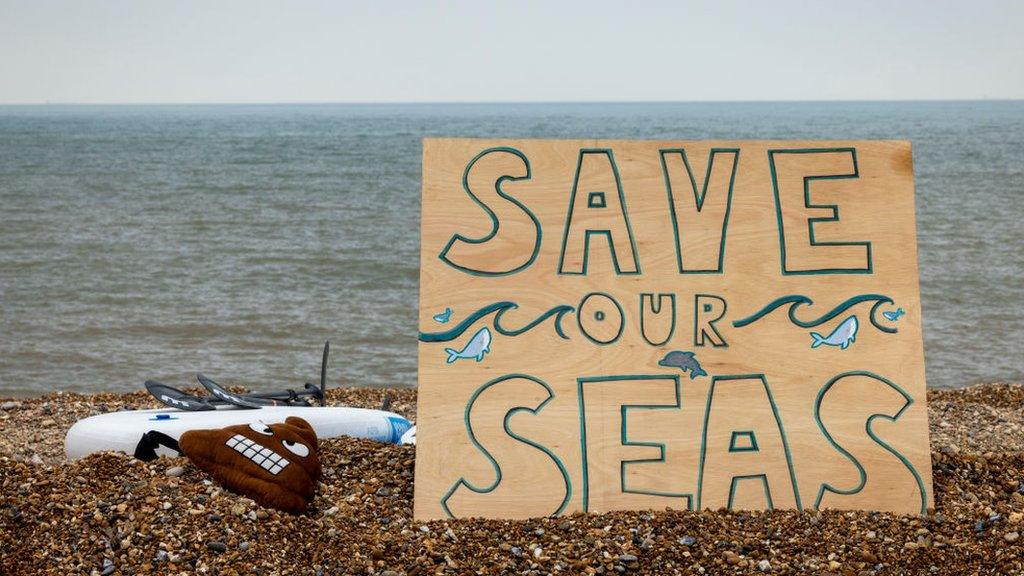'We should be prosecuting water polluters'
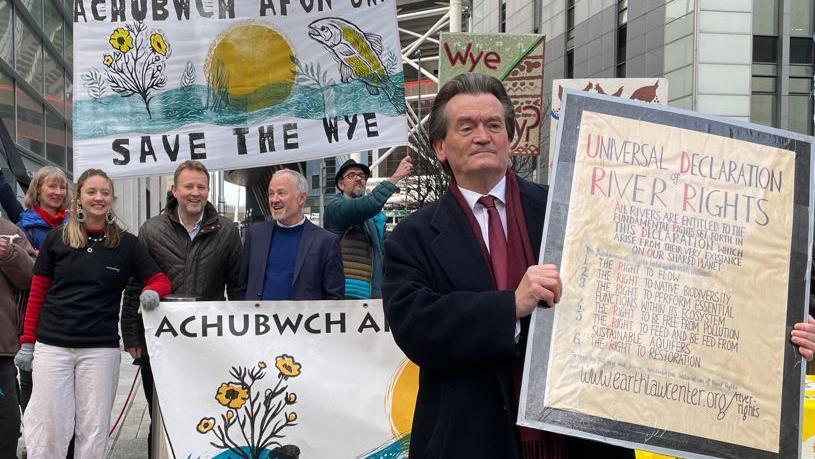
Singer Feargal Sharkey is one of the famous voices campaigning for clean water
- Published
Thousands of people from the Midlands will be joining forces to highlight the importance of clean water in their lives.
Friends of the River Wye and SafeAvon are just some of the 130 groups taking part in a London rally organised by the campaign charity River Action.
The RSPB, the National Trust and the World Wildlife Fund will be joined by naturalist Chris Packham, broadcasters Carol Vorderman and Liz Bonnin and Olympic rowing champion Imogen Grant in the capital on Sunday.
They are urging authorities to take action against the people and companies polluting rivers, lakes and seas.
Environment Secretary Steve Reed said he "shared the public's anger on this issue".
“That’s why we are placing water companies under special measures through the Water Bill, which will strengthen regulation including new powers to ban the payment of bonuses for polluting water bosses and bring criminal charges against persistent law breakers," he said.
“Just last week, I launched the largest review of the water sector since privatisation to address long-term failings in the sector, attract investment to drive environmental improvements and put our water sector on a sustainable footing.”
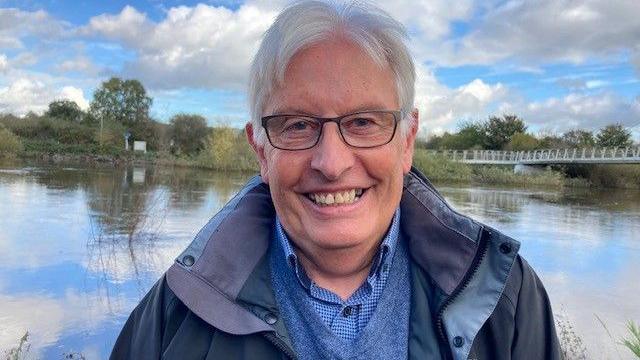
Glyn Marshall has fished the River Severn for 50 years
Glyn Marshall, who has been fishing on the River Severn for five decades, said he had seen dramatic changes in the quality of the water.
He said: "Unless something is done quickly, I fear that the fish live in the river will be drastically reduced. I'm worried that some of the bigger species won't be here within five years."
Environment Agency figures show Severn Trent Water released waste water into the Severn from its treatment plant in Worcester 81 times in 2023.
The company said it was investing £1.1bn on its storm overflows across the Midlands during the next six years to reduce spills, including £100m on 23 wastewater treatment plants in Worcestershire and £24m to remove phosphate at the Worcester site.
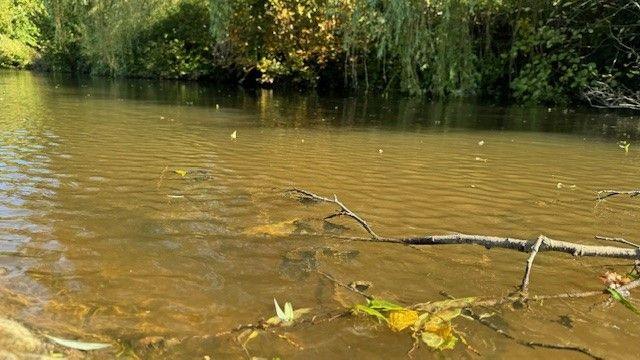
Campaigners are concerned about the impact of sewage and farming on rivers
Sewage spills into England's lakes, rivers and seas by water companies more than doubled in 2023.
According to the Environment Agency, there were 3.6 million hours of spills last year, compared with 1.75 million hours in 2022.
Water companies are legally allowed to release untreated sewage and water running off roads when it rains heavily.
This is because the treatment plants do not have the capacity to store the extra water and to stop homes being flooded.
The Environment Agency said it was investing more than £50m to increase its resources.
"Across the Midlands we have recruited new front-line regulatory specialists who will conduct thorough inspections at sewage treatment works, sewage pumping stations, and combined sewer overflows," a spokesperson said.
"We know there is more to be done - which is why we are holding the water industry and other polluters to account on a scale never done before."
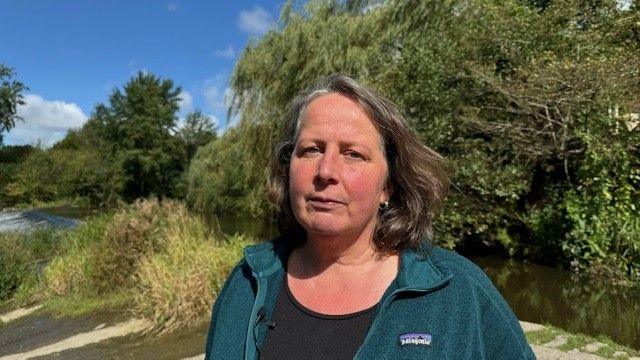
Dr Alison Caffyn tests the River Teme in Ludlow every week
Dr Alison Caffyn is concerned about the water quality in the River Teme in Ludlow.
"At times I don't come swimming when I know there's high levels of phosphates and E.coli," she said.
Dr Caffyn is researching the impact that animal waste can have when it is spread on land as fertiliser, and then runs into rivers when it rains.
She is concerned that the Environment Agency is using data for livestock farming from 2010.
"In those 14 years, there’s been over 100 new chicken farms approved or extended in Shropshire," she said.
"This is millions and millions more chickens in the catchment and the modelling is not taking account of all the manure that they’re producing and where it’s going."
The Environment Agency said it would be updating the data it uses next year and the proposed 2020 agricultural survey had been delayed due to the pandemic.
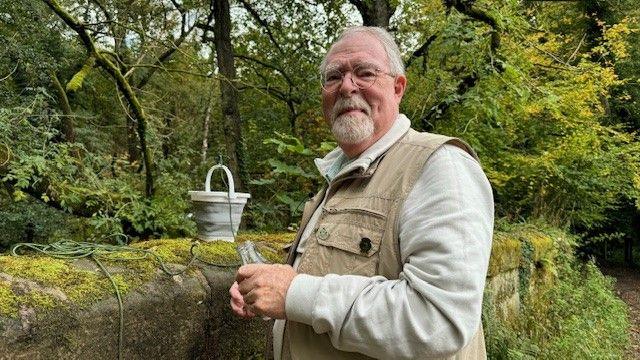
Tony Locker has been campaigning for clean rivers since the 1980s
In 1986, Tony Locker helped Leek and District Fly Fishing Association to take legal action against Severn Trent Water for polluting the River Churnet.
"We reached the point when the water was looking black as ink and we found 310 breaches of the licensing consent in the first two years alone," he said.
In 1992, following privatisation, the company accepted full liability and spent £28m upgrading treatment plants on the river.
"Something’s got to happen as it's not moving, we're going backwards at a rate of knots," Mr Locker said.
"It's such a wonderful thing, nature, so we need to look after it."
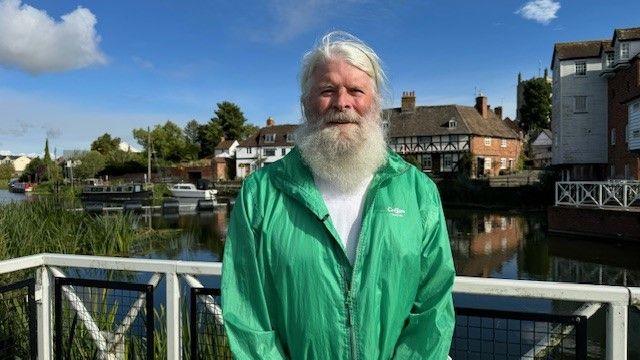
Geoff Sallis said he was frustrated at the state of the River Avon
Geoff Sallis is one of 70 volunteers in the Safe Avon group who have tested the water in the River Avon more than 1,200 times between them.
Their results shows increasing levels of phosphate and nitrate in the water, which can lead to more algae.
Data from the Environment Agency shows sewage was discharged in the river at Tewkesbury for more than 5,000 hours last year across 228 days.
Geoff wants more to be done to monitor how much waste is put into the rivers by water companies.
"We should be prosecuting the companies that pollute," said Mr Sallis.
"I just get offended that people, for profit, can use them as open sewers."
In response, Severn Trent Water said all of its spill data was shared with the Environment Agency, adding: "We continue to be completely open and transparent, whilst at the same continuing to reduce spills, and improve river health.”
The company said it was also investing £78m in a bathing rivers project using pioneering ozone technology, which would benefit the Avon.
A spokesperson for the company said: "We're ahead of government targets, and we’re leading the way in the UK."
Get in touch
Tell us which stories we should cover in Hereford & Worcester
Follow BBC Hereford & Worcester on BBC Sounds, Facebook, external, X, external and Instagram, external.
- Attribution
- Published30 April 2024

- Published16 September 2024
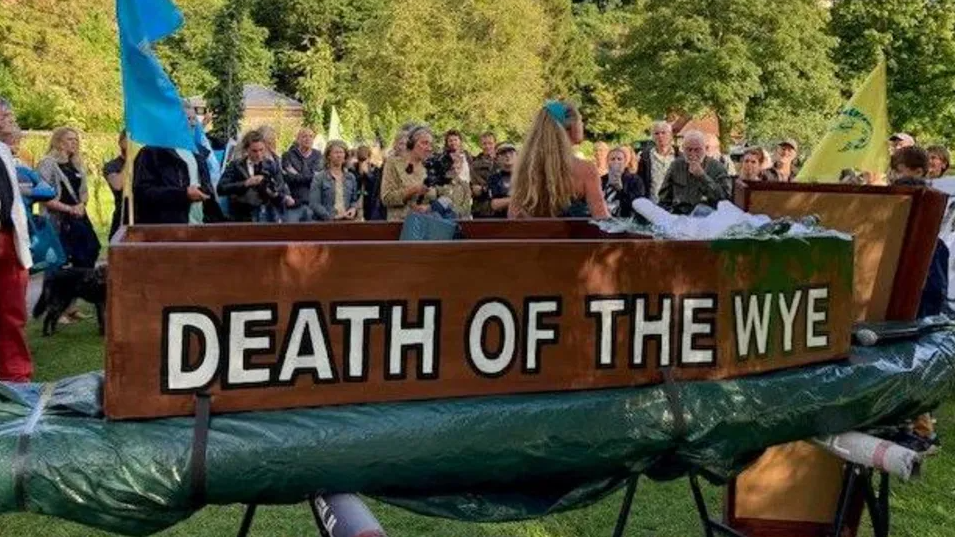
- Published22 August 2024

